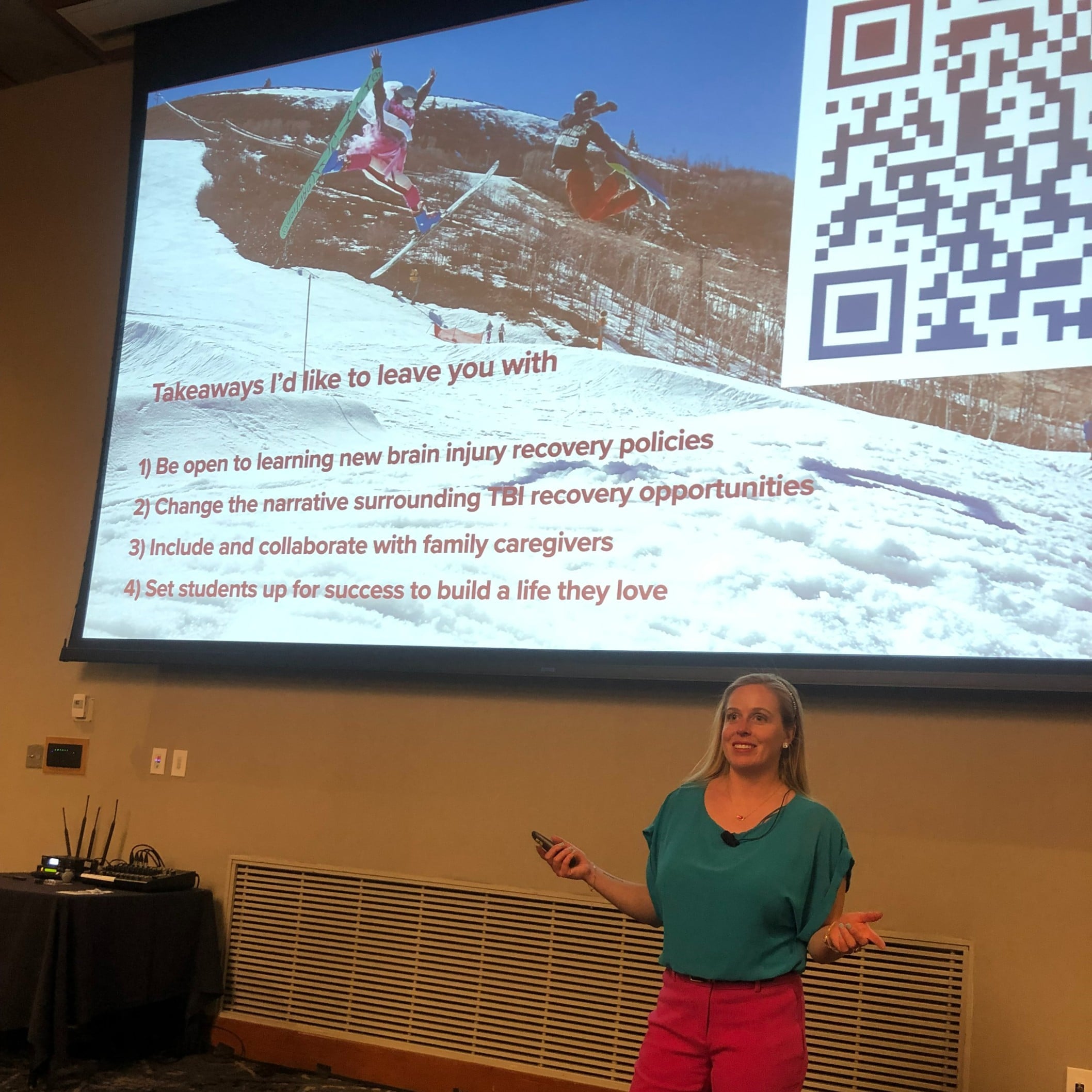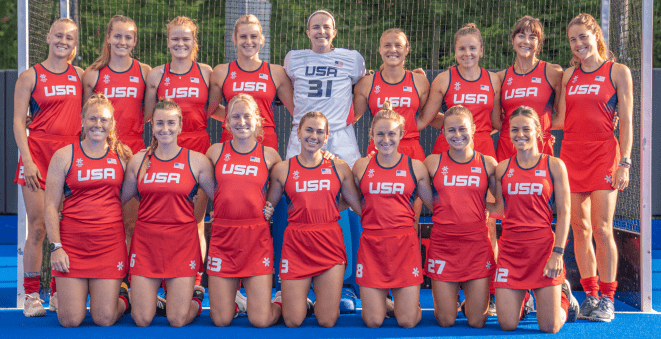What you think about is what you become.
That’s how former X Games athlete and World Cup skier Jamie MoCrazy lives her life.
And, while that may seem simplistic or basic, she not only lives by those words, but she also follows them up with actions. Jamie, a top competitor at the highest level of international events, such as the Dew Tour, X Games, and AFP World Championships, had a near-death experience caught on camera in April 2015.
She was hospitalized and woke up to a traumatic brain injury.
Jamie and her sister Jeanee recently went to Washington, D.C. to advocate for modernization of policies that would improve the quality of life for traumatic brain injury survivors. March is Brain Injury Awareness Month and Women’s History Month.

*Jeanee and Jamie MoCrazy are pictured at a film festival. Photo: Submitted
The sisters operate ‘MoCrazy Strong,’ a nonprofit organization aimed at supporting the brain injury community through advocacy and public policy. The organization is hosting an event March 23 called the ‘Alive to Thrive Day.’
One of the most common feelings shared among brain injury survivors is the feeling of being “alone,” Jamie said. There are brain injury survivors – both seen and unseen by medical professionals – in upwards of over 1 million just in the United States.
But, the urgency to support their recovery pales in comparison to other more prominent health conditions, meaning the current level of spreading awareness doesn’t match the attention that individuals living with brain injuries deserve.
“We’re going to change that,” she said.
Jamie is the first woman to land a double backflip at the X Games in 2013 and first woman to flip off a rail in a competition. While competing and attempting to land a double flip in Whistler, Canada in April 2015, she caught her ski upon landing and “whiplashed her head into the snow,” Jeanee told FAN.
“That caused her brain to start bleeding in eight spots, including her right brain stem,” Jeanee said. “She was immediately unconscious and convulsing on the snow. Ski patrol at Whistler were able to intubate her and IV her on scene, before even moving her to the helicopter, at which point, she was taken to the Whistler clinic and stabilized and then taken to Vancouver General Hospital, where she underwent treatment. And, she was still in a coma, for the entirety of the eight days she was in Vancouver. And, then we transferred back to Salt Lake City.”
The television crews had stopped filming the scene in case her crash was fatal, Jeanee said.
“All of a sudden, my own personal best had gone from breaking world records to being unable to swallow a glass of water without choking or being unable to walk up a flight of stairs,” Jamie said.
Jamie began to wake up after she returned to Salt Lake City. She had been in a coma for six weeks. Her instant reality was a “metaphorical avalanche.”
“I had two choices,” Jamie said. “I could stay stuck at the bottom, or I could climb. If I started to perform at my own personal best, I would reach alternative peaks with amazing views.”
“Jeanee watched it live,” she added. “When I woke up, um, over six weeks of my life had passed. I don’t remember the day of the accident. I don’t remember the time in the coma. I don’t remember when I woke up from the coma. I had serious amnesia. So, I remembered nothing day to day. And, then when my mind started coming back, one of my first thoughts and memories, and ideas, was that concept of being your own personal best, only it had changed dramatically.”
Nine years later, Jamie is hiking, enjoying reading again, skiing and advocating for others. She and Jeanee shared a hug the day of her fall, which was the last thing Jamie remembered. They are now trying to make the brain injury world better for others, even after having lost a sister to cancer two years ago.
“Over the process of Jamie’s recovery, we obviously got very connected with a lot of the brain injury world,” Jeanee said. “And, a lot of it kind of echoed the same response that brain injury was a sentence of disability and to this horrible life afterwards. As a family we were very committed that that was not going to be Jamie’s case, that was not going to be her story.
“We brought in a lot of integrated health and continued recovery for many years to be able to get Jamie to the stage of graduating college, living independently, and that was the beginning of our foundation MoCrazy Strong.”
This year, the sisters have worked with the Utah government. And, they recently visited Washington, D.C. to support the reinstatement of the TBI Act in the federal government.
Jeanee, a Vanuatu citizen set to compete in the 2026 Winter Olympics in halfpipe skiing, had to battle her own mental scars after she witnessed her sister’s traumatic fall.
“She looked like a zombie,” she said.
Five months post incident, Jeanee competed for the first time. She had to work through triggers of seeing helicopters at international competitions outside of the US and Canada. The United States and Canada only use them when there’s a “life-threatening incident.”
In other countries like New Zealand and Switzerland, they have helicopters on standby because the travel distance is too far.
“It didn’t mean people were dying, it just meant they needed a doctor,” Jeanee said.
The sisters continue to lock arms in their efforts to educate a population unaware of the lifelong challenges of a brain injury survivor. Brains can recover and sometimes it takes “many, many years,” Jamie said.
“So that understanding is so limited because it used to be that our medical understanding of neuroplasticity was that it was for the cortical stages of development, which are the first two years of life, or the first two years post-accident (for recovery),” Jamie said. “So everything that’s been set up federally and statewide for brain injury care has been under the umbrella that it will be two years…it’s not true.
“I know personally for me, when I was two years out, I went back to college, but reading still hurt my head. I didn’t ever read for fun. And, then I used to be a very avid reader, like a very, very avid reader, and it hurt my head and I didn’t like it. And, I would reread the lines over and over again. And, so I got through college, and it wasn’t until we were hit by the pandemic of COVID-19, and all of a sudden my life changed, along with lots of other people, and I had a lot of time that I didn’t exactly know what to do with. And, I was like, ok I keep telling everyone, if you create these habits and you stick to these habits, you can create new brain pathways in your brain and change your brain. So, I’m gonna try it.”

*Jeanee MoCrazy advocates for brain injury survivors. Photo: Submitted
Jamie began reading for 20 minutes every other day, she said.
“And, so I had a timer on my clock every other day, I would read for 20 minutes, and at first I wasn’t having any fun,” she said. “I couldn’t wait until it was over, and then I realized when I was reading the Harry Potter books again, I was like, oh 20 minutes, I want to keep reading. And, I wasn’t re-reading the words. And, it wasn’t hurting my head. And, so now I’m back to reading for pleasure and fun and I genuinely like reading again.”
Social, emotional, and behavioral skills often take time for brain injury survivors to relearn, Jamie said. Because of the stigma associated with brain injury survivors, most people are afraid to share their trials for fear of incorrect judgment.
The brain injury community should share what works to help heal, she said.
“Trusting your gut above everything else,” she added.
Brain injury journeys can take a lifetime. But, they don’t have to align with the way others perceive them to be. Humor is a great reliever of life’s woes, she said.
Other than getting back to skiing, which she did, and hiking, as well as reading, Jamie connected with music.
“We listened to a lot of music,” Jeanee said. “She really fixated on the song ‘Style’ by Taylor Swift. And, we have this little choreographed dance routine to it now, as like five year-olds have their favorite song they play on repeat, this was hers. So, there was a lot of that uplifting stuff.”
“Cause I wanted to come back, after I went crashing down, and ‘I never wanted to go out of style.’” Jamie said. “I never wanted to go out of style, so that’s why I latched onto that song. And, I even tried to dance on the tables in the lunch room. And, it turns out that nobody thought it was a great idea to have a brain injury survivor dancing on the table. So I had to dance in the middle of the room.”
The MoCrazy sisters are committing to continuing their quest to help others with brain injuries. For more information, visit their foundation website at MoCrazy Strong Foundation | Jamie MoCrazy | TBI Awareness.




